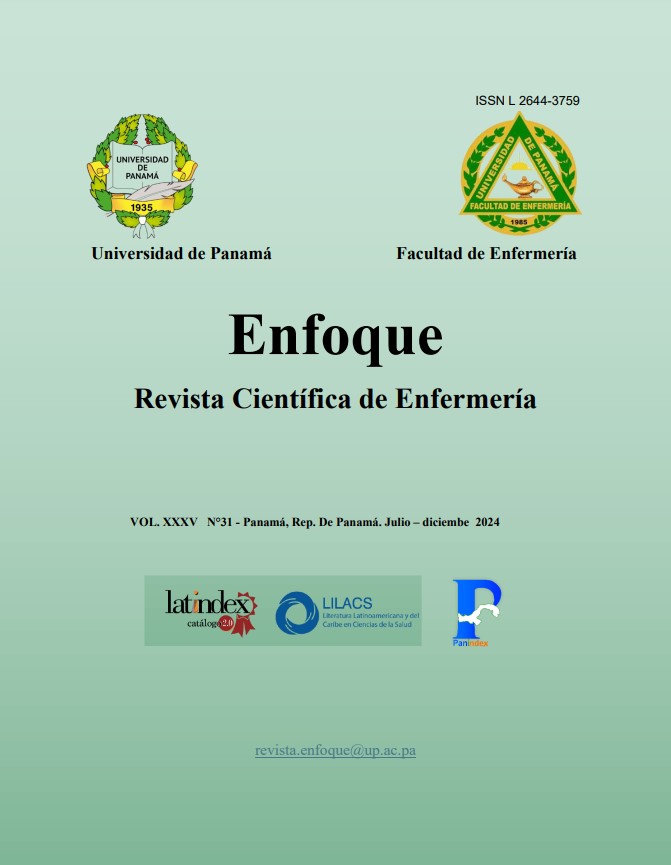

Copyright (c) 2024 Enfoque

This work is licensed under a Creative Commons Attribution-NonCommercial-ShareAlike 4.0 International License.
The Family Study is one of the strategies of Primary Health Care used across various disciplines and in the training of nursing professionals. It represents a binding modality for understanding the health and disease processes of the individual and his family. The family is a fundamental determinant of health, providing insights into understanding the development of individuals and the community. This family study aimed to implement a comprehensive care plan using Dorothea Orem's self-care theory, which teaches the importance of self-care to maintain and preserve health from a biopsychosocial approach. The study began with a visit to the index case, an older adult with a grade II venous ulcer, along with chronic non-communicable degenerative diseases such as diabetes mellitus, arterial hypertension, osteoarthritis, and arterial insufficiency. The objective is to analyze the dimensions of the selected family, from the index patient and her family to her environment, disease and housing, and to apply the selected nursing theory. Data collection from the patient and family was conducted using interviews. In addition to applying a family Apgar, a SWOT, and familiogram were used as instruments to better analyze the data collected. Interventions included educational capsules and health education, the creation of educational material allusive to these, and teaching and demonstration activities for family members and patients. Significant results included improvements in the patient's self-care practices, family integration in the patient's healing process, better management practices of the caregivers' body mechanics, integration to other health programs such as the Integral Home Care Program (SADI), Internal Medicine and Adult Program, and greater adherence to the Wound Clinic Program.